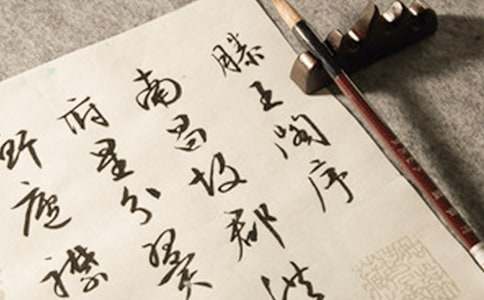- 相关推荐
《滕王阁序》传世精华英译赏析
摘 要:中国古代杰出青年、位居初唐四杰之首的文坛天才和传世名人王勃在辞谢红尘前夕的即席即兴传世名作《滕王阁序》通篇偶句天成、意象雄浑,结构回环、气韵流动,句式整饬、音律和谐,在中国文坛创下了千古传诵、历久弥新的跨时代奇迹。本文选取这一传世名篇中的传世名句和我国外语界资深学者罗经国教授编译的《古文观止精选(汉英对照)》力作,以汉英对比的方式赏析了传世精华的英译之美。

关键词:传世名句 《滕王阁序》 英译赏析
《滕王阁序》亦名《滕王阁诗序》,全称《秋日登洪府滕王阁饯别序》,属千古骈文名篇,系中国古代文坛天才王勃于唐高宗上元二年或三年(675或676)9月往南省父过此,受宾主假意谦让之邀,即席即兴而作。作者借登高盛饯,感怀时事,慨叹身世,咏唱人生,虽含有人生无常、命运多舛的种种遗怨,但留给世人更强烈的感受却是他渴望入世的抱负和强自振作的信念。全文以饯别滕王阁为中心事件展开,可分为四个部分,首尾两部以叙事之笔起结,中间两部一为写景,一乃抒情。四个部分首尾相承、前后呼应,脉络通畅、浑然一体。序文凭借作者个人的旷世文学天赋和超然骈文技艺集结构、句式、语法、修辞、音律、气韵等诸多文艺要素于一体。欲将此等中华文学瑰宝翻译成“信、达、雅”皆备的英文绝非易事,这不仅需要译者有深厚的外文知识功底和娴熟的外语应用能力,而且要有扎实的国语古文基础。因此,笔者选择了我国外语界当代知名中外文学研究专家、北京大学罗经国教授编译的《古文观止精选(汉英对照)》力作作为本文赏析的英文译文范本。
一、开篇渲染显气蕴之英译
原作第一部分为开篇叙事之引言。作者紧扣题中“洪府”二字,极力铺陈渲染,勾勒出一幅群英荟萃、高朋满座的绚丽画卷,尽显宴会的豪华气蕴和高端背景。
原作选段:
豫章故郡,洪都新府。/星分翼轸,地接衡庐。/襟三江而带五湖,控蛮荆而引瓯越。/物华天宝,龙光射牛斗之墟;人杰地灵,徐孺下陈蕃之榻。/雄州雾列,俊彩星驰。/……十旬休暇,胜友如云;千里逢迎,高朋满座。/腾蛟起凤,孟学士之词宗;紫电青霜,王将军之武库。
英文译文:Nanchang, which was the capital of Yuzhang Prefecture during the Han Dynasty, now falls under the jurisdiction of Hongzhou./It straddles the border of the influence of the Ye and the Zhen constellations, and is adjacent to the Heng and the Lu mountains. /The three rivers enfold it like the front part of a garment and the five lakes encircle it like a girdle. It controls the savage Jing area and connects Ou and Yue, /and its products are nature’s jewels. The radiance of its legendary sword shoots directly upward between the constellations Niu and Dou. Its talented people are outstanding, and the spirit of intelligence pervades the place. This was the place where Xu Ru spent the night on his visit to Chen Fan./The mighty Hongzhou spreads out immensely amid the fog, and the intellectual luminaries are as numerous as meteors chasing one another./…On this official holiday, which falls on every tenth day, good friends gather together, and a galaxy of distinguished guests from distant places fill the hall./ Also present at the gathering are Master Meng, whose literary grace is as imposing as a dragon soaring and a phoenix dancing, and General Wang, who has weapons as sharp as the famous swords“Purple Lightning”and “Blue Frost”in his armory.
译文赏析:译文前两句分别用“capital”和“jurisdiction”“straddle the border of”和“is adjacent to”等近义关键词语意译原作的“故郡”与“新府”、“天象”与“地位”,第三句分别用“three rivers”和“five lakes”、“control”和“connect”直译原作的“三江”和“五湖”、“控”和“引”,精准而生动地描述了南昌的地理方位,天时地利跃然纸上;接着将千古名语“物华天宝”和“人杰地灵”分别译为“its products are nature’s jewels”和“its talented people are outstanding, and the spirit of intelligence pervades the place”,等效达意、类而不同;此后的译文生动传达了原文关于洪州城房屋像雾霭罗列、人才像繁星闪耀的两个比喻,形神兼备;最后直译“腾蛟起凤”和“紫电青霜”两大比喻,恪守气韵。
二、写景状物造意境之英译
原作第二部分为写景状物之落点。作者紧扣题中“秋日”和“登滕王阁”六字,尽绘美景,文笔瑰丽、手法多样,移步换景、声色兼备,将秋日风光描写得淋漓尽致、光彩四溢。
原作选段:
时维九月,序属三秋。/潦水尽而寒潭清,烟光凝而暮山紫。/……层峦耸翠,上出重霄;飞阁流丹,下临无地。/……披绣闼,俯雕甍,山原旷其盈视,川泽纡其骇瞩。/……虹销雨霁,彩彻云衢;落霞与孤鹜齐飞,秋水共长天一色。/渔舟唱晚,响穷彭蠡之滨,雁阵惊寒,声断衡阳之浦。
英文译文:It is September, the third month of autumn./ The puddles on the ground have dried up, and the water in the pond is cool and translucent. At dusk the rays of the setting sun condensed the evening haze, turn the mountains purple./……Ranges upon ranges of green mountain rise as high as the sky. The red glow in the water is the reflection of the richly painted tower that seems hovering in the air. From its heights no land is visible./……Pushing open the door carved with decorative patterns, I look down upon endless waves of brightly tinted roof tiles, each elaborately engraved with lovely etchings. A panorama of mountains and plains stretches beneath me, and I am mesmerized by the mighty scene of the winding rivers and big lake./……The rain has just let up and the rainbow has vanished. The sunlight shoots through the rosy clouds. A solitary wild duck flies alongside the multi-colored sunset clouds, and the autumn water is merged with the boundless sky into one hue./ The fishermen can be heard singing the evening songs, their voices drifting as far as the banks of the Poyang Lake. Even the wild geese feel the chill of dusk settling upon them, and they cry all the way while flying southward, disappearing around the south bend of the Heng Mountain.